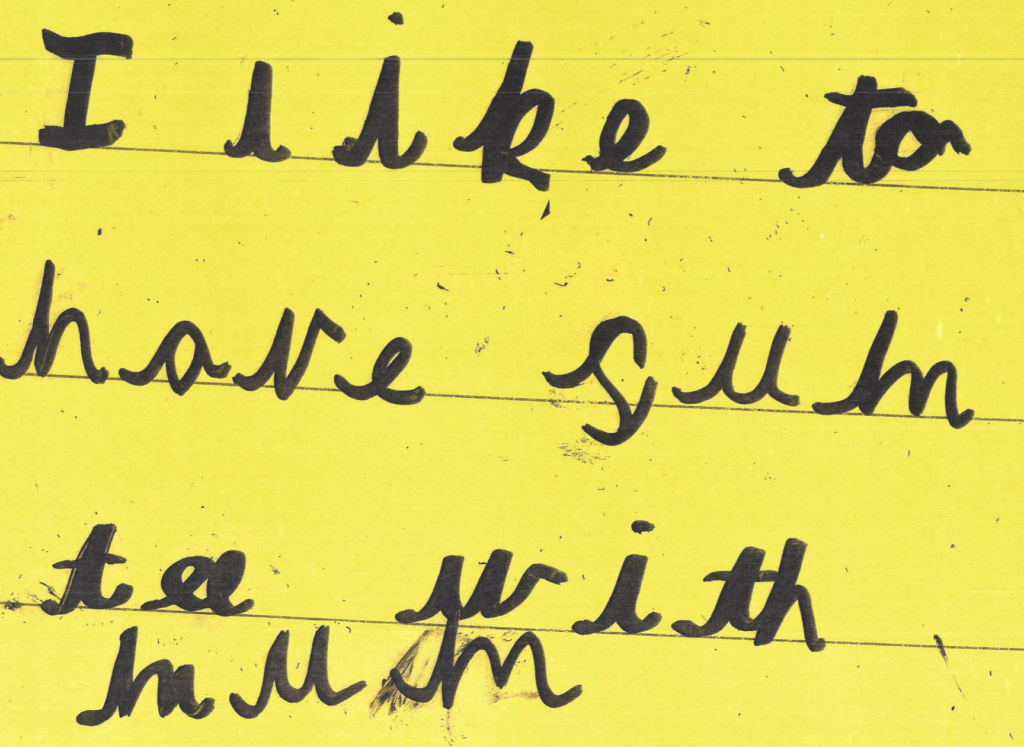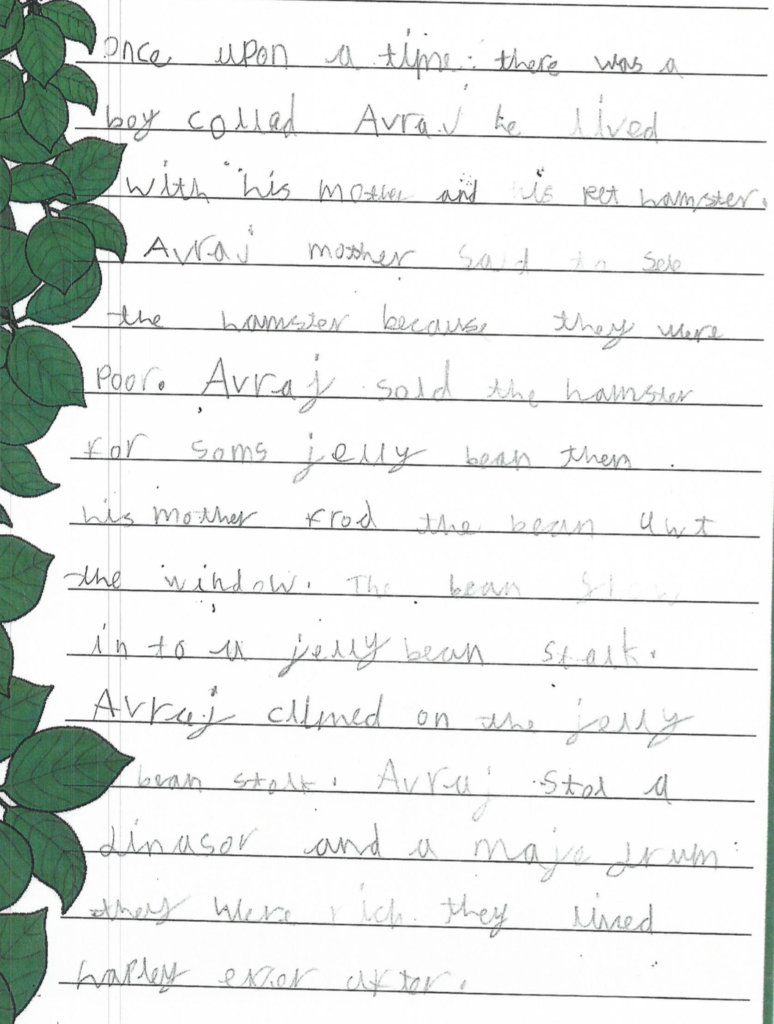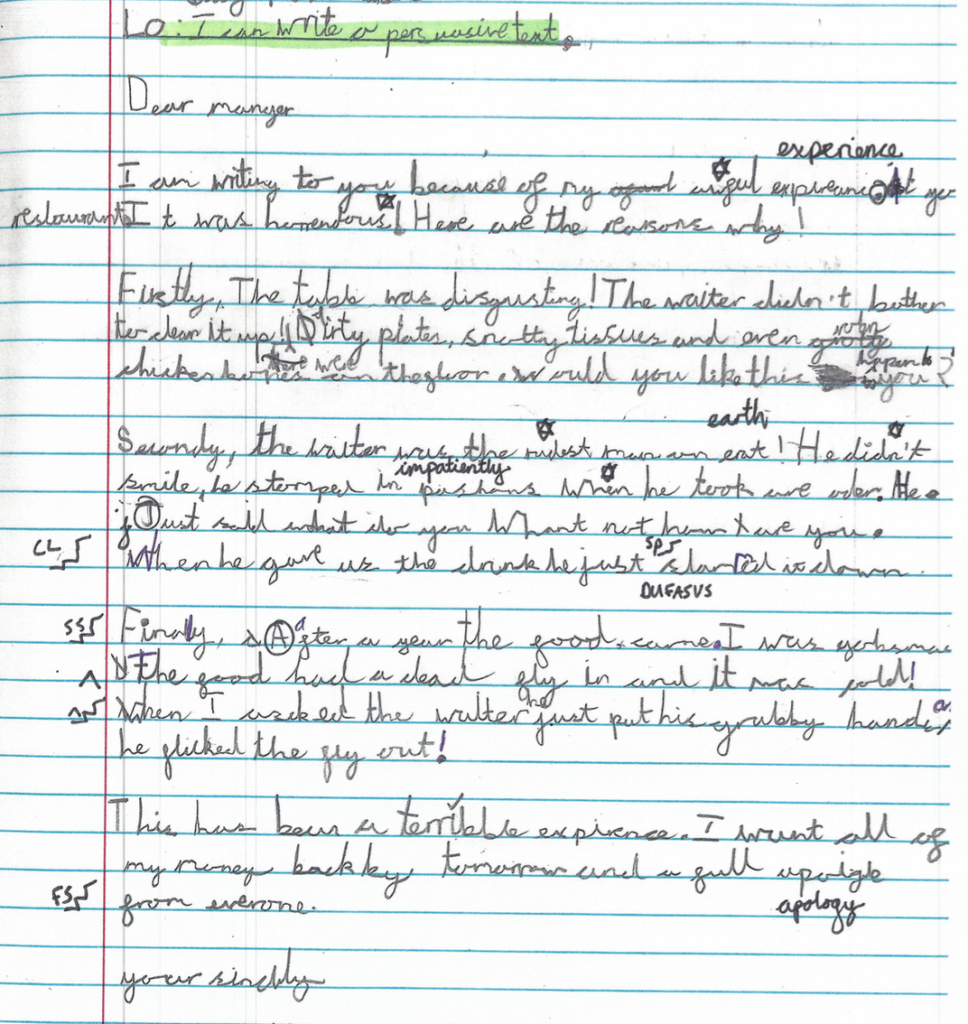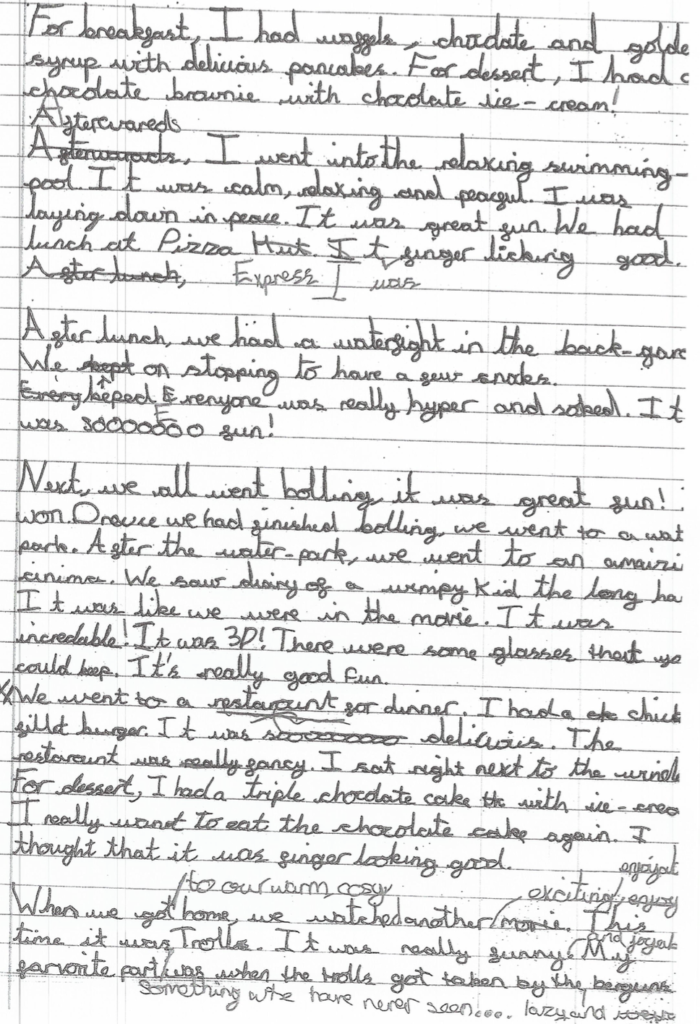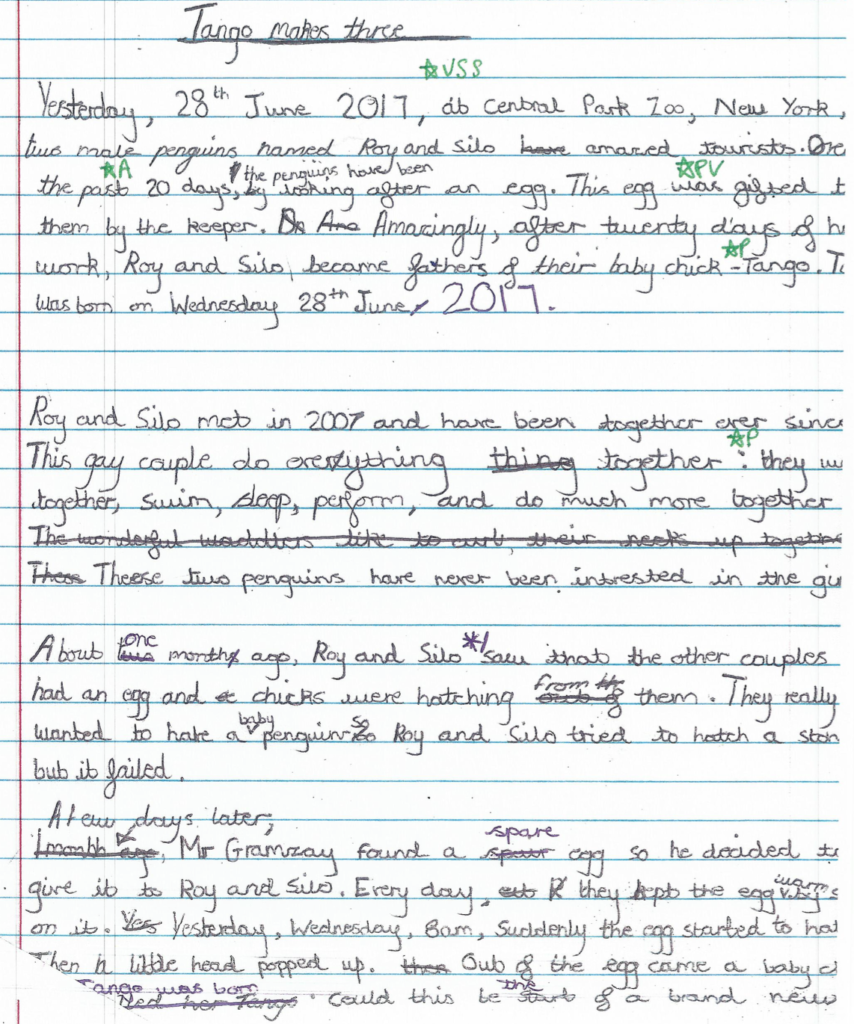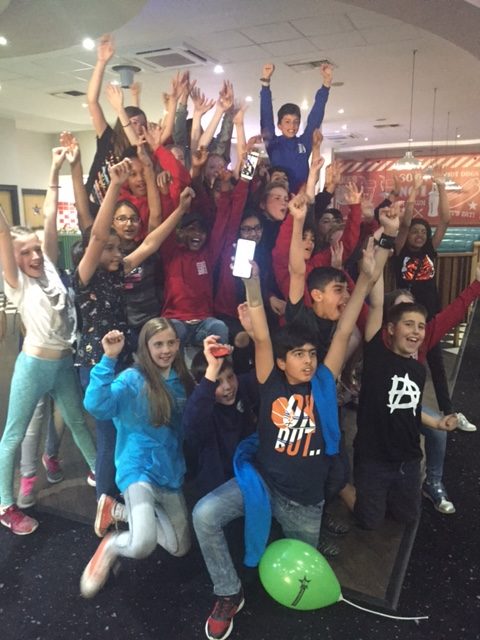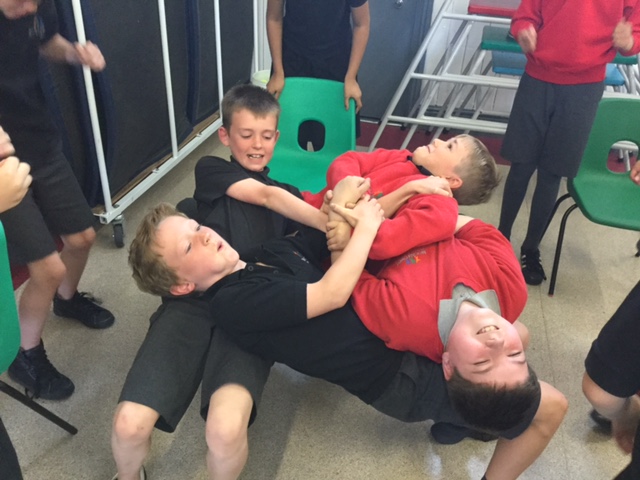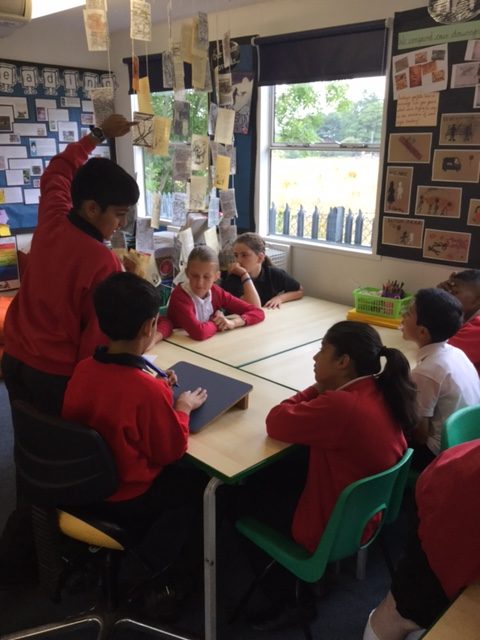Thanks to all those of you who took the time to complete our recent parent / carer survey. There were 71 responses in total – that’s around one in three of you. More Reception and Year 3 parents/carers responded; other than those classes, the response rate was reasonably evenly spread.
Below is a summary of what you’ve said.
Lots of you added some comments after each question; we’ve included here just one or two positive and negative comments that present typical responses. Please do contact us directly if you said something which might help us improve further. We can’t guarantee we can accommodate everyone’s wishes or opinions, but we do guarantee we consider each one.
Finally, don’t forget there’s a post box just inside the main entrance – you can use this to post any sort of feedback, as and when you like. And, of course, Mrs Weekes is around at the start and end of most school days if you’d like to pass on any questions, comments and concerns.
1. My child is happy at Moortown Primary School.
80% of you strongly agreed with this, and 18% agreed – this is great!
We are, however, concerned about the one other respondent who strongly disagreed – please do contact school to discuss the matter if you don’t think we are aware.
There were eight comments made for this statement. Six were entirely positive (such as ‘He bounces out of bed in the morning: there is always something to look forward to!’ and ‘Loves school. Finds it exciting, stimulating.’), and two expressed concerns about academic pressure or their child’s occasional worries.
2. My child feels safe at this school.
Everybody agreed with this statement, with over 75% agreeing strongly. We take safeguarding at Moortown Primary very seriously so we’re really happy about this – we’ve nearly always been rated 100% for this statement in the past.
Comments back this up:
‘He and his friends know that bad behaviour and bullying are not acceptable – and that teachers will deal with any problems swiftly and fairly.’
‘Yes. The school also approaches wider safety issues well e.g. through the staying safe themed week, discussing in an age-appropriate way worrying things in the news (such as the recent terrorist attacks), and regular news updates about safety (staying safe online of particular interest to me).’
3. My child makes good progress at this school.
63% of you strongly agreed with this, and 32% agreed. Nobody disagreed, but three respondents were unsure.
Of the nine comments, five were entirely positive (such as ‘It’s great that they are animated about their learning – the topics in particular seem to go down well’ and ‘I feel my daughter has thrived at Moortown’), one was neutral and three were somewhat critical, wanting to see more progress, especially greater challenge for higher attainers (‘I would like the high achieving children challenged more with their learning’).
This concern about challenge is not unique to Moortown Primary. Since the government moved away from assessing children according to levels, and placed an emphasis on ‘mastery’ and ‘deeper learning’, schools have faced the challenge of providing greater opportunities to develop this deeper learning and not automatically going to a level higher up. We are reassured that the proportion of children who have achieved ‘greater depth’ in the end of Key Stage 2 tests is significantly higher than national figures, suggesting that we do challenge the higher attaining children. However, we are not complacent and we do intend to continue exploring ways to provide challenge.
4. My child is well looked after.
All but one of you agreed here (96%), and again, the proportion who strongly agreed was substantial (63%). This leaves just one respondent, who indicated they were unsure.
Other than two which mentioned very specific instances (relating to an instance of vomiting and a lack of extra toilets), comments were positive:
‘I feel the teachers at Moortown are empathetic regarding the children. They understand a child’s needs and are always happy to comply to any special requests. For example when [my daughter] had a poorly knee, the teacher was happy for her to sit on a chair at carpet time.’
‘Very much so. Particular thanks to Mrs Small for ensuring daughter’s worries are listened to, and Mrs O’Malley for ensuring the children have been fine after various minor ‘falling overs’ in the playground.’
5. My child is taught well at Moortown Primary School.
100% of you said yes to this, with 70% agreeing strongly – that’s a great result, and teachers will be pleased and proud.
‘Every year his new teacher is viewed with initial suspicion (because he loved his old teacher) but quickly becomes his “favourite ever teacher”!’
‘Teaching is very strong, but it’s also good to see creative and more non-academic subjects aren’t ignored. I’m particularly pleased at the number of sporting opportunities that have been available to my children this year – netball and Tchoukball tournaments, triathalon event, cycling, to name a few.’
‘She has really progressed and is confident in her learning.’
6. Adults in school make sure pupils are well behaved.
66% strongly agreed with this, and 30% agreed. Just one person disagreed and two were unsure.
Four comments were made. Three are entirely positive, including: ‘There is a good ‘warnings’ system and rewards system in place. I always see well behaved children. They understand the boundaries which are enforced throughout the school’.
One of the four comments was less positive: ‘My child has learnt quite a lot of bad habits and words from other children which often can’t be helped but I do think manners should be promoted and children shouldn’t go to the toilet together as they learn disgusting habits’.
Regarding the first part of this comment, at Moortown Primary, for many years now, we have regular weeks in which we promote good manners – you can see when these are on the website (usually at the start and end of half-terms). For 2017-18, the weeks are ‘I greet someone politely’ (04.09.17); ‘I say please and thank you’ (11.12.17); ‘I don’t interrupt’ (02.01.18); and ‘I cover my mouth (when I yawn, cough, sneeze)’ (19.02.18). As well as this, we reward instances of good manners continually, and we ‘model’ good manners amongst staff.
Relating to the second part, we’re not entirely clear how and when children go to the toilet together – it’s not something we want to happen. We are keen to explore this more, so if you made this remark, please do contact us.
7. Moortown Primary deals effectively with bullying.
34% strongly agreed and 41% agreed with this statement (‘My son spent 7 years at the school and never mentioned any occasion of bullying.’). It’s quite typical that there is a large proportion of parents / carers who indicate they are unsure (this year, 24%) – respondents cite the reason for this being that their child hasn’t encountered bullying (‘Aware of the policy although no personal experience.’).
We’re not complacent. Sadly, in all schools, some bullying behaviour may arise. However, this comment is very reassuring: ‘First time this year we’ve had a brush with bullying. Daughter spoke to me about her concerns, and we talked about the school’s definition of bullying and what we could do about it. She decided as a starting point to put her concerns in the SEAL box. This was picked up very quickly by the school teacher and resolved immediately, before the situation could escalate. Daughter in particular was very happy with how it was sorted.’
This comment perfectly illustrates our message to our children. We define bullying as upsetting or harmful behaviour which is Several Times On Purpose, and we encourage children to Start Telling Other People before it becomes a problem. (Please help us reinforce this message at home, too.)
Of concern here is the one respondent who disagreed, and the one critical comment – perhaps from the same person. We can’t explore this issue here, but really would encourage parents / carers who have any concerns to follow similar advice to what we say to children: start telling us.
8. The school is well led and managed.
70% strongly agreed and 28% agreed (nobody disagreed and one person was unsure).
This is an especially important point this year as Moortown Primary has undergone quite a significant leadership change.
One comment was negative: ‘I believe it has dropped in standards since Mr Roundtree has left’. This is a tricky one: I left, but then Moortown joined a federation of which I’m the senior leader – so I’ve not actually left. Also, learning outcomes this year are as good as ever (and substantially so for our Year 6 cohort who have just left). Perhaps the respondent is referring to other standards – we’d be keen to discuss this more.
The three other comments were very positive, including: ‘Absolutely. Mrs Weekes is highly visible around school (e.g. often at the school gate) and very approachable. Joining Sphere and Mr Roundtree moving to Head of Federation has not affected the quality of the leadership and management at Moortown, and this continues to be very strong.’
9. The school responds well to any concerns I raise.
51% of respondents strongly agreed and 39% agreed: ‘The only concern I have ever had so far was regarding school dinners which was handle efficiently and sympathetically’.
Rather like the bullying statement above, it’s not surprising that there is a large proportion of parents / carers who indicate they are unsure (10%) – respondents cite the reason for this being that they’ve never raised concerns (‘Luckily I haven’t had to raise any concerns over the last 7 years’).
Well done to Mrs O’Malley and Mrs Russell: ‘Not needed to raise any major concerns, but am sure that these would be dealt with well. School office excellent first ‘go to’ place and fountain of knowledge for minor queries’.
…And to Mrs Valentine: ‘I was most impressed with Mrs Valentine’s willingness to give her time to discuss some concerns about [my daughter]’s spelling with me. She was receptive to learning more about specific spelling disorders/weaknesses and how this might be addressed. A valuable exchange of ideas.’
10. I receive useful information from the school about my child’s progress.
Just over half of the 61 respondents (51%) agreed strongly with this, and another 42% also agreed. Three respondents (4%) disagreed and two were unsure (3%).
Comments here (eight in total) were mixed. There was a good deal of praise (‘Learning updates at parents’ evening are provide a good overview. I know that if I have any concerns about their learning, their teacher will make themselves quickly available to talk to us. This is appreciated.’).
Some respondents would like more frequent learning updates, or more about subjects other than core subjects (reading, writing and maths). There’s obviously a balance to be struck here: providing more information can be time-consuming and the majority of parents don’t need or want it. Teachers are happy to speak to individual parents who would like a few more updates, as one respondent notes: ‘Regular parents’ evenings are held but also teachers are available to speak to before and after school’.
However, we’ll encourage teachers to refer to more subjects during parents’ evenings – we value all learning, and need to reflect this.
Incidentally, information about supporting your child’s progress comes in many ways: learning workshops and ‘Watch us while we work’ sessions are a regular feature in the Moortown academic year. Last year, teachers held duplicate learning workshops – one straight after school and one in the early evening – sadly, these were poorly attended.
Finally…
..we asked you to tell us about things you like and the things we could improve on. We’re delighted by all the praise here – with 47 comments out of the 61 responses in total, it far out-weighed suggestions of ways to improve.
Typical responses relate to how friendly the school is and the good behaviour of our children.
‘The general ‘village’ feel of the school: everyone at school knows and looks after all the children; the staff seem to communicate well at all levels; and the children leave primary school well rounded individuals. Oh – and the new website looks great!’
‘Moortown is an inclusive school and is a supportive, friendly environment. Both my children have felt supported and as a parent I feel that any issues that I may raise no matter how small are listened to and acted upon where necessary.’
‘Proud to be part of the Moortown family. I like the school because it is small and feels friendly, I also feel that it makes use of the limited space available. Always tales of innovative learning at home!’
‘I like the community feel and that both my children are happy to,come to school and are motivated to learn. I find the head of school and many other staff welcoming and very approachable.’
‘Positive management of behaviour and encouraging children to take responsibility for their own choices.’
The suggestions to improve are very varied.
Some comments which crop up more than once is our size, the traffic on the school run and limited play space – all of which are to an extent out of our immediate control, but things we do try to influence (…and let’s hope our new green space will happen soon).
Quite a few comments relate to school dinners, which we’ll consider. We are exploring ways to improve choosing the dinners, which will help.
There were other, more specific comments. These include a Class News page for the website (there used to be one, and there will be one soon for the new website); a third parents’ evening (instead of this, parents are encouraged to raise any questions, comments and concerns whenever they arise, and they are always invited to attend a drop-in session following their child’s annual report); and paying for trips and clubs electronically (something we’ve looked into, but are still reluctant to introduce due to additional costs).
Perhaps inevitably, there were contradictory suggestions, too (such as ‘More classroom based learning as well as more homework would help kids learn faster and also make them work harder, preparing them in a better way for the higher classes’ versus ‘There is a lot of pressure on children to achieve and progress. I struggle to get my child to do his homework as we spend a lot of time doing other things…’).
Finally, even amongst the suggestions to improve, there was a lot of praise! (Thank you for comments such as these: ‘Nothing Moortown could do to improve. They are simply fantastic’ and ‘I am happy with what the school offers my child’ – we do very much appreciate them.)
